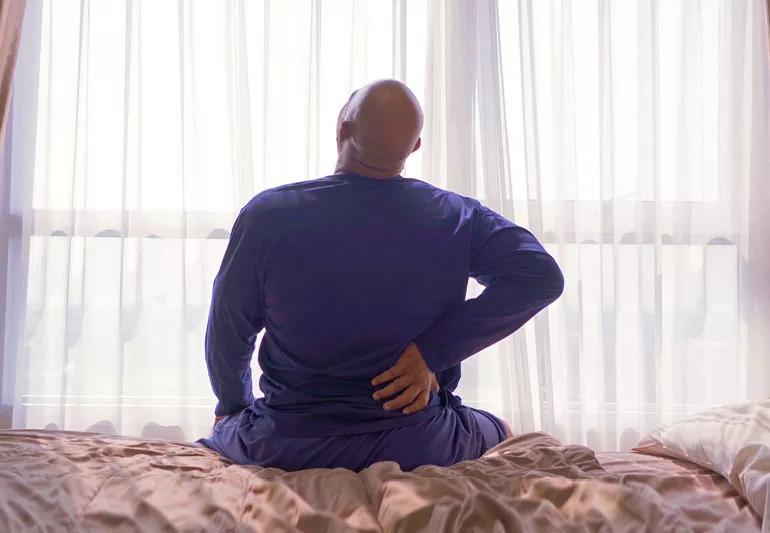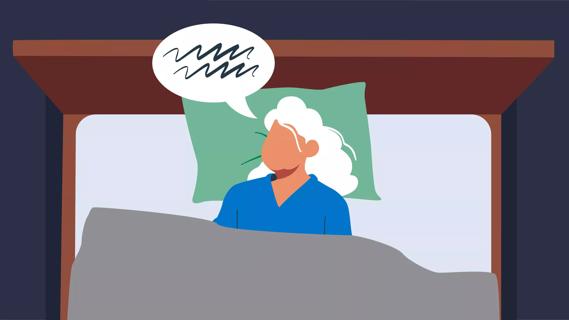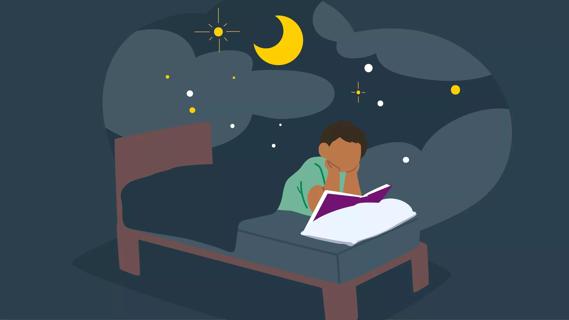Advertisement
Find the right sleep position to tame your joint pain

If you roll out of bed bleary-eyed every morning, thinking, “Oh, my aching [insert painful joint here],” you’re not alone.
Advertisement
Cleveland Clinic is a non-profit academic medical center. Advertising on our site helps support our mission. We do not endorse non-Cleveland Clinic products or services. Policy
Research shows that between 50% and 90% of people who have chronic joint pain don’t sleep well. And, that sleep deprivation can lead to other health issues, including low energy, mood disorders and eating problems.
If you have chronic pain in your hips, knees or shoulders, there are things you can do to limit how much the discomfort affects your nighttime rest.
“A healthy brain is a well-rested brain. It can deal better with pain, such as arthritis, on an ongoing basis,” physiatrist Geraldine Dapul, MD, says. “Lack of sleep, on the other hand, can directly affect your mood, and a bad mood can make it harder to cope with pain. This can become a vicious cycle.”
Some problems with broken sleep patterns are normal as we age, according to Dr. Dapul. But you should not wake up and stay awake every night because of pain. If this sounds similar to your situation, consult your primary care physician.
“If your pain goes on for more than three or four days in a row or intermittently for two to three weeks, it’s time to get it addressed,” Dr. Dapul says. “And if your pain is so severe that you require alcohol or over-the-counter sleep aids to fall asleep, then it’s worth getting it looked at.”
See your doctor if you have joint pain and:
Any of these problems can indicate a more serious condition in need of immediate medical attention.
Finding the right position can be the most crucial part of avoiding pain during sleep. Twisting and turning to find a comfortable spot is normal, Dr. Dapul says. But even the slightest twinge of pain can disrupt your rest. She recommends starting out sleeping on your side — avoid a sore shoulder if you have one — with a pillow between your legs. Try avoiding lying flat on your back, too.
Side-sleeping won’t work for all shoulder pain, though. Minimize that discomfort by wrapping your arm in a bandage or wearing a sling to bed. It’ll keep your arm immobile and prevent you from sleeping with your arm in an awkward position.
Dr. Dapul also offers some general sleep recommendations to help nearly anyone, not only pain sufferers.
Advertisement
Normal joint pain, especially in your hips, knees and shoulders, frequently worsens at night, notes Dr. Dapul. Your sleep position and the alignment of your body are responsible for most of the pain, but some comes from being so still at night. Being in a flexed, fixed position throughout the night may also contribute to pain.
“Joints swell at night, and motion gradually lubricates them and keeps the fluids moving round,” she says. “When you stop moving, they can swell more. This can cause stiffness and pain.”
Advertisement
Learn more about our editorial process.
Advertisement

Sleeping with separate blankets can help you get the ZZZs you need — without fighting for covers all night

Stress, weight gain and forgetfulness are just a few effects of losing sleep

Stress, alcohol, sleep apnea and (you guessed it!) scary movies are a few common causes of bad dreams

Recording your dreams may help you become more mindful, understand your thought patterns, process your emotions and even reduce your stress

Chamomile, lavender and valerian root teas may offer a faster route to dreamland

Research shows a strong association between rheumatoid arthritis and heart issues

Many factors can contribute to sleep talking, like stress or anxiety, lack of or low-quality sleep, or even more serious sleep-related conditions

A consistent, structured routine, which may include incentives, can help children learn to stay in bed and get the ZZZs they need

Your metabolism may torch 1,300 to 2,000 calories daily with no activity

A gentle touch in all the right places may help drain your sinuses